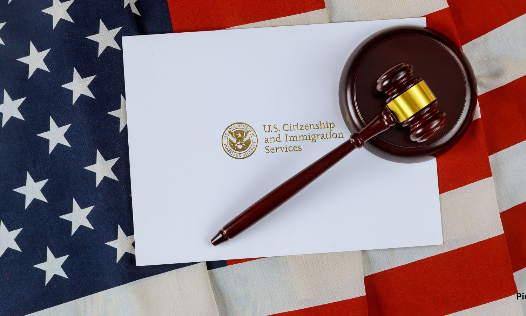Payment is being processed. Please do not refresh or close this page until your payment is complete.
 Book an Appointment
Book an Appointment

In a major update to the EB-1 visa, USCIS now accepts team-based achievements as evidence of extraordinary ability, offering a streamlined pathway for highly skilled professionals seeking U.S. permanent residency.
The U.S. Citizenship and Immigration Services (USCIS) has announced significant updates to the guidelines for the EB-1 visa category to enhance the immigration process for highly skilled professionals.
The changes, which aim to simplify the criteria for demonstrating “extraordinary ability,” are now in effect and expected to benefit top-tier professionals in science, arts, education, business, and sports.
Understanding the EB-1 Visa
The EB-1 visa, also known as the Extraordinary Ability Permanent Residence visa, is a category designed for foreign nationals with exceptional skills in fields like science, arts, education, business, or sports.
It offers a faster path to a green card for those who can demonstrate extraordinary achievement in their chosen field and also includes their spouse and children.
Key Changes to the EB-1 Visa
The most notable revision in the guidelines is the recognition of team-based awards as valid evidence of extraordinary ability. This change expands the qualifications for EB-1 applicants, making it easier for individuals involved in collaborative projects to qualify under the extraordinary ability subcategory.
While this update offers new opportunities for those applying under the EB-1 visa, experts suggest that it may not significantly impact applicants pursuing the EB-2 or EB-3 categories unless they can demonstrate extraordinary ability to meet the EB-1 criteria.
1. Expanded Recognition of Team Achievements
One of the most notable changes in the updated guidelines is the increased recognition of team-based awards. Previously, applicants were primarily evaluated on their accomplishments.
The USCIS now acknowledges that many significant breakthroughs in science, technology, and other fields result from collaborative efforts. Therefore, it will now consider team awards and contributions to joint projects as valid evidence of extraordinary ability.
Examples of Eligible Team Achievements
• Engineers in Technology: Professionals who have contributed to award-winning software or AI initiatives can now use team accolades as part of their EB-1 application.
• Athletes: Internationally recognized athletes, such as those on cricket teams that have achieved major victories, can leverage their team achievements.
• Researchers: Individuals involved in groundbreaking scientific research recognized on an international level may find it easier to qualify under the revised EB-1A guidelines.
2. Broadened Opportunities for Indian Professionals
The updated guidelines offer new possibilities for Indian professionals, many of whom face long wait times under the EB-2 and EB-3 categories. Over 140,000 Indians await EB-1 green cards, making the EB-1A subcategory a more attractive option, especially for STEM professionals.
Team-based accomplishments, like contributions to award-winning research or innovative tech projects, can now qualify as evidence of extraordinary ability. This change benefits engineers, researchers, and athletes who have significantly impacted their fields through collaborative work.
Cost of Filing for an EB-1 Visa
For those interested in applying under the EB-1 visa, the cost of filing Form I-140, Immigrant Petition for Alien Workers, is $700 (approximately ₹58,779). Applicants under the EB-1A category, who can self-petition, need to cover this cost themselves, although the sponsoring employer typically pays the fee.
New Pathways for Skilled Professionals
As U.S. immigration policies continue to evolve, the recent USCIS updates offer new pathways for highly skilled professionals, particularly from India, seeking permanent residency in the U.S.
The updated guidelines now benefit professionals involved in collaborative efforts, making team-based achievements a valuable opportunity across various sectors.
Conclusion
The recent changes to the EB-1 visa guidelines mark a significant step in streamlining the U.S. immigration process for extraordinary talent. By recognizing team-based accomplishments, the USCIS has opened new doors for professionals across various fields, offering them a clearer path to achieving permanent residency in the United States.
Source: https://travelobiz.com/uscis-updates-eb1-visa-guidelines-for-highly-skilled-professionals/